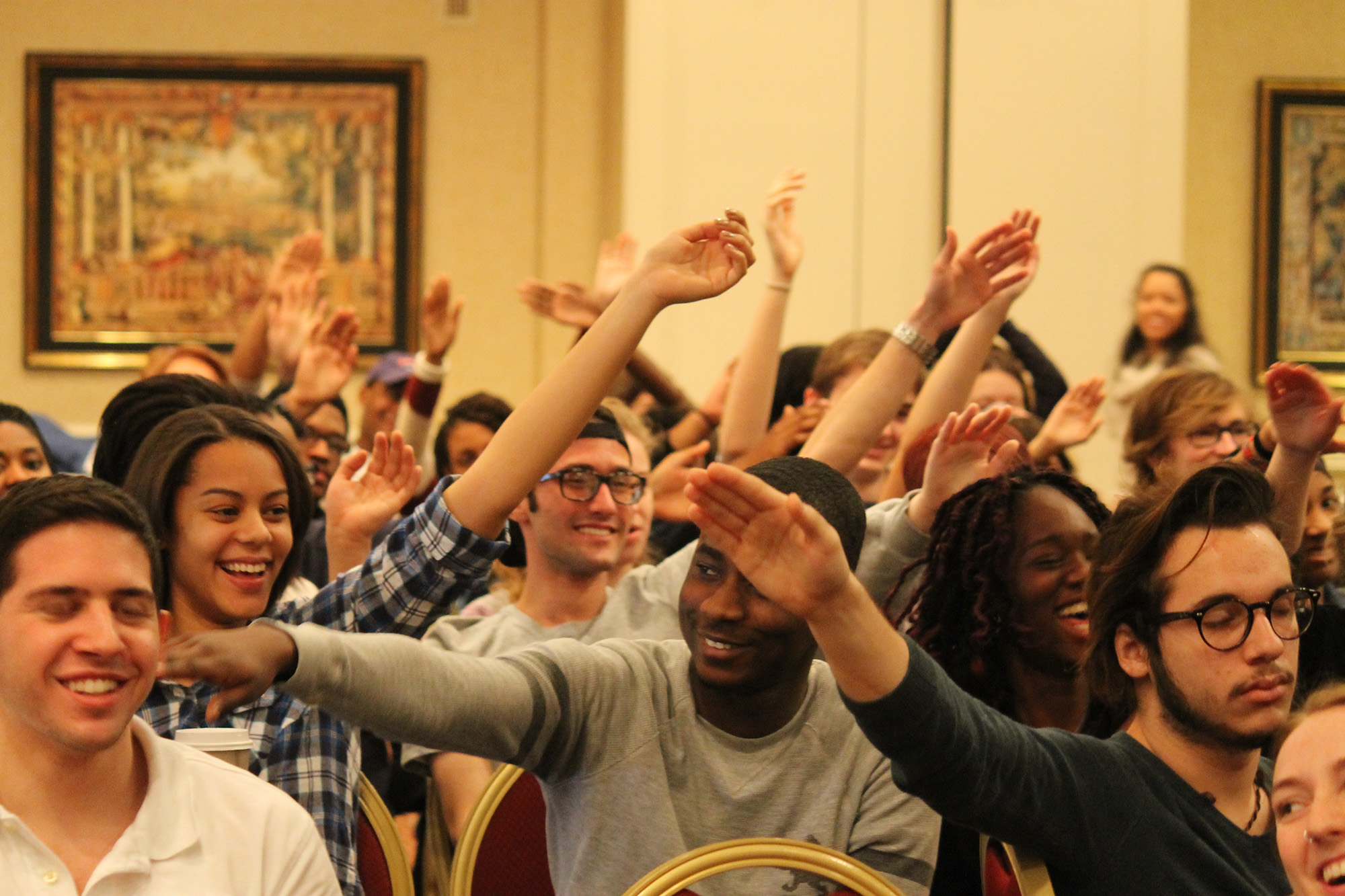
Posse Scholars, Hamilton students and faculty gathered on Feb. 5-7 at the Radisson Hotel in Utica to better understand the influence of language in contemporary society at the annual Posse Plus Retreat.
The Posse Foundation is a national organization that works to recruit students with impressive leadership abilities from urban public high schools, place them in supportive groups of 10, and send them to elite partner institutions, such as Hamilton.
Currently recruiting in 10 major cities across the U.S., the Posse Foundation has a growing list of 55 partner schools that host these groups, referred to as Posses. Hamilton is a dual city partner, hosting Posses from both Boston and Miami sites.
A staple of the program is the Posse Plus Retreat, occurring on all partner campuses that center around a topic selected by national survey months before. These retreats are focused on generating discussions on a topic that is present in both local and national consciousness. Past topics have included issues of identity and the American Justice System. The official topic of 2016 is “Sticks and Stones: Language Use in a Diverse Society.”
Conversations varied in size, with topics ranging from personal experiences with stigmatized language to trigger warnings in different contexts. Activities included many staples of the Posse program, including small “family groups” of students and faculty that work together through mock issues that influence decisions on an institutional level. Other standards included guided one-on-one conversations, and group writing activities.
One of the most important elements to the Posse Plus Retreat’s success is an adherence to the tenets of “Safe Space,” which encourages participants to be mindful of the many opinions in the room. First-year student Phinix Knight-Jacks, a member of Boston Posse 15, said “I was able to open up about some of my issues in an environment I felt safe in.” Knight-Jacks explained that it was the establishment of these expectations by the retreat facilitators that framed her experience positively.
Each of these elements functions with the intent to empower the conversation to continue when participants return to campus. As opposed to other years, where the focus was put on addressing significant and broad topics such as systemic racism, this year’s proposed solutions took a more personal approach. Of themore than 150 participants, many students resolved to make changes to personal language choices, while others took interest in engaging with course materials more critically.
“I think one of the benefits of PPR is that I always come away with more questions than I did going in. In this case, that is a good thing because it challenges my way of thinking so that I am cognizant of different people’s perspectives,” remarked Tim Henderson ’18, a member of Boston Posse 14.
The impact of this unique educational opportunity was not lost on guest Lizz Spagenthal ’18. After attending her second retreat, she remarked that “The retreat is a great way to create dialogue about students' thoughts regarding difficult topics that can benefit our campus in positive ways.”
Posted February 10, 2016
